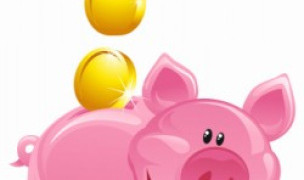 20 Terms
20 TermsHome > Terms > Macedoneană (MK) > земјоделска политика
земјоделска политика
Countries often provide support for their farmers using trade barriers and subsidy because, for example:
- domestic agriculture, even if it is inefficient by world standards, can be an insurance policy in case it becomes difficult (as it does, for example, in wartime) to buy agricultural produce from abroad;
- farmers groups have proved adept at lobbying;
- politicians have sought to slow the depopulation of rural areas;
- agricultural prices can be volatile, as a result of unpredictable weather, among other things; and
- financial support can provide a safety net in unexpectedly severe market conditions. Broadly speaking, governments have tried two methods of subsidizing agriculture. The first, used in the United States during the 1930s and in the UK before it joined the European Union, is to top up farmers' incomes if they fall below a level deemed acceptable. Farmers may be required to set aside some of their land in return for this support. The second is to guarantee a minimum level of farm prices by buying up surplus supply and storing or destroying it if prices would otherwise fall below the guaranteed levels. This was the approach adopted by the EU when it set up its Common Agricultural Policy. To keep down the direct cost of this subsidy the EU used trade barriers, including import levies, to minimize competition to EU farmers from produce available more cheaply on world agriculture markets. Recent American farm-support policy has combined income top-ups and some guaranteed prices. As most governments have become more committed to international trade, such agricultural policies have come under increasing attack, although the free trade rhetoric has often run far ahead of genuine reform. In 2003, rich countries together spent over $300 billion a year supporting their farmers, more than six times what they spent on foreign AID. Finding a way to end agricultural support had become by far the biggest remaining challenge for those trying to negotiate global free trade.
0
0
Îmbunătăţire
- Parte de vorbire: substantiv
- Sinonim(e):
- Glosar:
- Industrie/Domeniu: Economie
- Categorie: Economie
- Company: The Economist
- Produs:
- Acronim-abreviere:
Alte limbi:
Ce doriţi să spuneţi?
Termeni la ştiri
Termeni dezvoltaţi
Industrie/Domeniu: Nunţi Categorie: Servicii pentru nunţi
студена венчавка
Вид на венчавка кај која церемонијата се спроведува на многу ниски температури. За студените венчавки обично се смета дека ја симболизираат ...
Colaborator
Glosare dezvoltate
Browers Terms By Category
- Arhitectură(556)
- Design interior(194)
- Design grafic(194)
- Amenajare peisagistică(94)
- Design industrial(20)
- Design aplicat(17)
Design(1075) Terms
- American culture(1308)
- Cultură populară(211)
- General culture(150)
- Persoane(80)
Cultură(1749) Terms
- Unelte manuale(59)
- Unelte de grădinărit(45)
- General tools(10)
- Unelte construcţii(2)
- Pensulă(1)
Unelte(117) Terms
- Aer condiţionat(327)
- Încălzitoare apă(114)
- Uscătoare şi maşini de spălat(69)
- Aspiratoare(64)
- Cafetiere(41)
- Electrocasnice pentru gătit(5)





